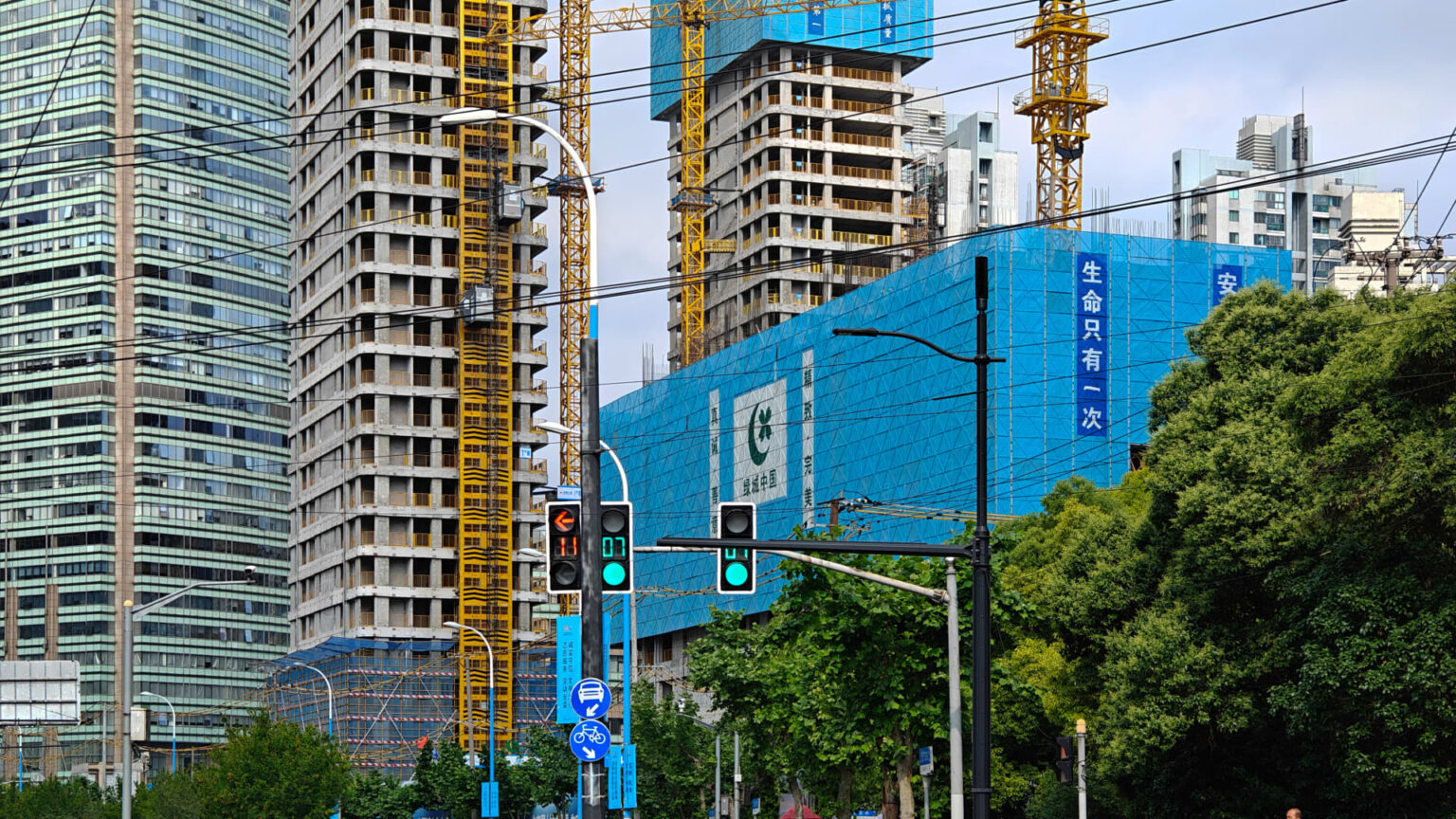Global Courant 2023-05-31 05:09:38
On May 25, 2023, construction of a real estate development project will start near the Bund in Shanghai, China.
Future publication | Future publication | Getty Images
BEIJING — New data shows that China’s huge real estate sector is still struggling to recover, despite signs of recovery earlier this year.
“In a reversal from April, housing prices accelerated, but sales slowed,” the US-based China Beige Book said in its report for May, released Tuesday. This is based on the survey conducted by the research agency among 1,085 companies from May 18 to 25.
“In commercial real estate, both prices and transactions weakened sharply,” the report said. “Poor construction results and reduced fiscal activity caused copper producer revenues and production to shrink in May.”
Beijing has eased pressure on real estate developers over the past year, following a crackdown on their debt levels in August 2020. According to Moody’s estimates, the real estate and related sectors account for more than a quarter of China’s economy.
New home sales for the week ended May 28 grew 11.8% from a year ago, a sharp slowdown from growth of 24.8% a week earlier, Nomura’s chief Chinese economist Ting Lu noted Monday. in a report. This is based on a seven-day moving average from Wind Information.
Sales volume for both weeks was lower than the same period in 2019, prior to the pandemic, the report said.
Most of the sales decline came from China’s largest cities, the report said. Those so-called tier-1 cities have been a bright spot as people tend to move to urban centers for work.
Investors are pulling back
Investors in Chinese real estate developers are also becoming increasingly skeptical about the market.
The Markit iBoxx index for Chinese high-yield real estate bonds is back close to where it was trading in November, as Beijing announced support for the sector through a “16-point plan”.
While that plan has “played an important role in laying a bottom in this crisis,” the initiatives are aimed only at supporting developer debt at the project level, S&P Global Ratings analysts said in a May 22 report.
That means there is still uncertainty about whether developers can repay investors for holding-level bonds, the rating agency said. They see if the developers can generate enough money from property sales.
In April, analysts pointed out that national real estate sales fell to 900 billion yuan ($126.87 billion), below last year’s monthly average of 1.1 trillion yuan.
For all of 2023, S&P expects developer sales in China to decline by about 3% to 5% – slightly better than the previously forecast decline of 5% to 8%.
Forecasts for this year are based on expectations that sales in larger cities will grow by about 3%, while sales in smaller cities will not fall by more than 10%, the report said.
Secondary market stumbles
In the secondary housing market, business activity “has been cooling since April, with a decline in the number of homes for sale, lower asking prices and fewer transactions,” Fitch Ratings said in a press release Monday.
“This slowdown follows a strong rebound in 1Q23, suggesting home buyer confidence remains fragile amid uncertain economic outlook and weak employment prospects.”
New homes in China typically sell before developers have finished building the apartments.
“Sentiment in the secondary housing market can generally be seen as a barometer of the real estate industry, as pricing and supply are not subject to regulatory intervention – unlike the new home market,” the Fitch analysts said.
Secondary housing sales also have a major impact on new home prices, according to the analysts, who estimate that more than half of the homes sold in China’s largest cities fall into the secondary housing market.
Learn more about China from CNBC Pro
The weak performance in May comes amid heightened market expectations for a recovery.
A quarterly survey by the People’s Bank of China found a increased locals’ interest in buying a house in the coming months – and higher expectations for higher real estate prices.
The real estate market is still in a “period of adjustment,” said Liu Lijie, a market analyst at Beike Research Institute, in a written commentary translated by CNBC on Tuesday.
Government policies should improve market expectations for a real estate recovery, Liu said, noting that additional measures could be taken even in major cities to stimulate home buying.








